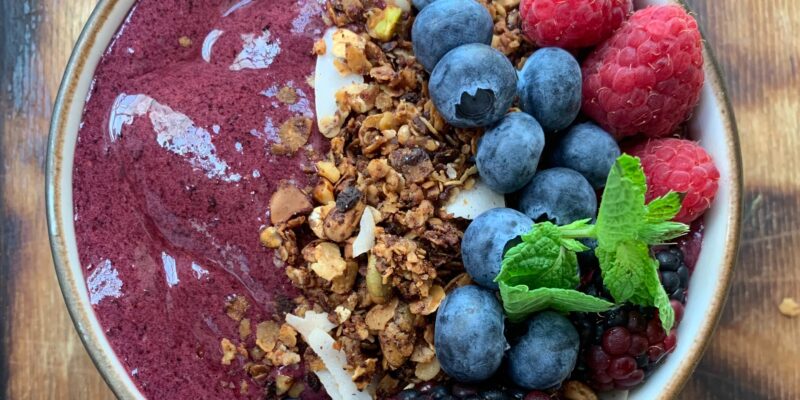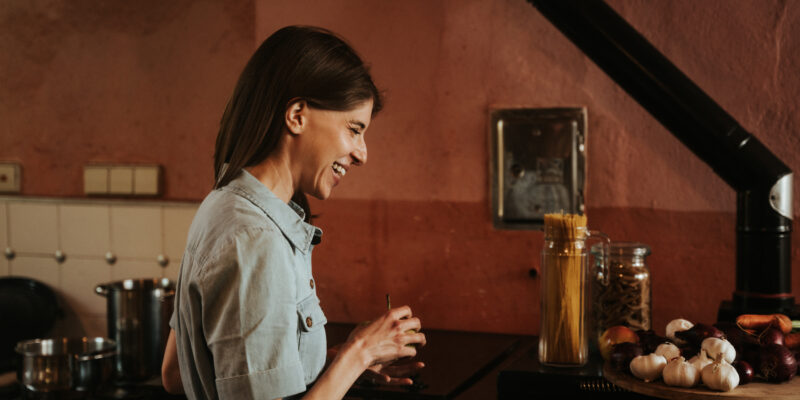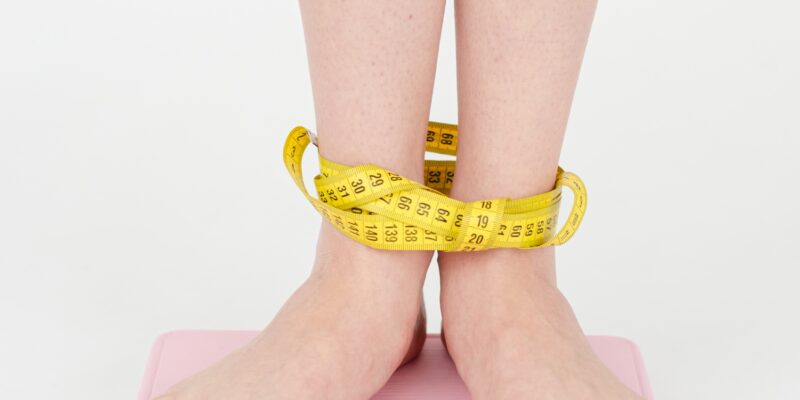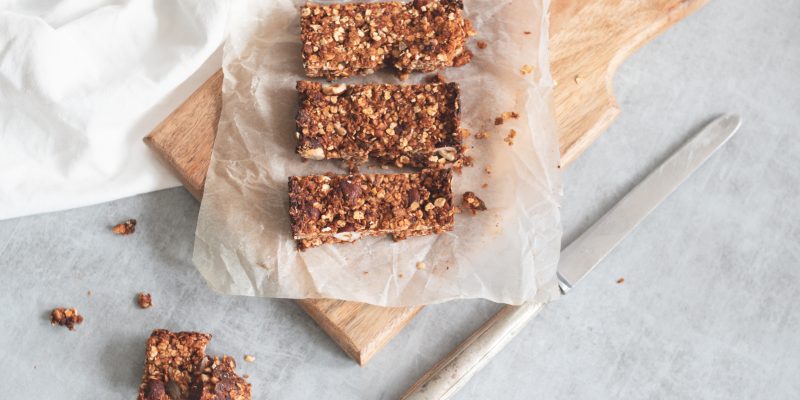Are “superfoods” really essential for dancers, or is it just marketing hype? In this article, we break down what nutrient density actually means and how it applies to dance performance. Learn how to refuel, rebuild, and recover with practical, sustainable nutrition strategies. If you’re looking for realistic nutrition for dancers that supports both performance and flexibility, this guide is for you.
Read More...Holistic Nutrition for Dancers
A holistic approach to nutrition helps dancers fuel their bodies in a way that supports strength, focus, recovery, and mental well-being. This guide breaks down what exactly holistic nutrition is and how dancers can use these strategies as a supportive tool rather than a source of stress.
Read More...Overcoming The Orthorexic Identity
Struggling to separate who you are from disordered eating can feel overwhelming, especially for dancers. Many dancers are praised for “healthy” eating or strict training routines, making it easy to define yourself by those behaviors. But your worth is bigger than any diet rule or exercise pattern. This post offers practical strategies to reclaim your identity, nourish your body, and move through dance with confidence.
Read More...What Should Dancers Eat in A Day?
It is one of the most searched and misunderstood questions in dance nutrition. Instead of rigid rules or vague advice, this guide breaks down real foods, real meals, and realistic snacks that support energy, performance, and recovery. No diets. Just practical fueling examples dancers can actually use.
Read More...Nutrition for Dancers: What to Eat for Energy, Strength, and Recovery
Nutrition for dancers is about more than what to eat. It is about fueling consistently to support performance, recovery, hormone health, and long term strength. Here you will find evidence based guidance designed specifically for dancers navigating demanding training schedules and body image pressures. Every article is grounded in practical strategy and sustainable nutrition principles.
Read More...Understanding RED-S in Dancers
Dance demands strength, stamina, and artistry, but too often the fuel required to sustain it is overlooked. Relative Energy Deficiency in Sport, or RED-S, can quietly undermine a dancer’s health, performance, and longevity. From hormonal disruption to injury risk and burnout, the consequences are real and far-reaching. Understanding RED-S is a critical step toward protecting both your body and your career.
Read More...What Should Dancers Eat Before an Audition?
Auditions demand more than strong technique. They demand smart fueling. What you eat before an audition can impact your energy, focus, and ability to perform under pressure. Learn how to build a realistic audition fueling plan that supports your body without falling into diet culture traps.
Read More...Dancers Need to Stop Weighing Themselves
Dancers are often taught to rely on the scale to stay “on track,” but body weight does not define health or performance. Tracking and body checking can fuel anxiety, disordered eating, and disconnect you from your body’s natural cues. This article explains why stepping away from the scale supports body trust, appetite regulation, and long-term well-being. You’ll also learn compassionate, non-scale ways to measure progress in your training and relationship with food.
Read More...Should dancers eat less when not dancing?
Time away from the studio can feel unsettling for dancers, especially when routines change and movement decreases. Many dancers wonder if eating less during rest days or injuries is necessary or helpful. The truth is that fueling does not stop just because dancing does. This article explains how to nourish your body, protect your mental health, and support recovery when you are not actively dancing.
Read More...Balanced and Guilt-Free Holiday Eating Tips for Dancers
Holiday meals can bring joy, connection, and tradition, but they can also feel stressful for dancers navigating food and body expectations. The combination of rich foods, disrupted routines, and social pressure can challenge even the most supportive relationship with food. This article provides practical, dancer-specific strategies to help you feel grounded, nourished, and satisfied during the holiday season.
Read More...A Dancer’s Diet: Nutrition Supplements
Should dancers use protein powders? How about multivitamins? If not consuming a well-rounded diet that is sufficient in both calories and nutrients, dancers are at risk for developing key micronutrient and macronutrient deficiencies. Before deciding whether or not you can benefit from a nutrition supplement, consider the following 5 tips.
Read More...A Functional Approach to Food: Is It Better?
Functional and integrative nutrition approaches are popular among dancers but can be confusing and sometimes risky. While they often emphasize food as medicine, stress management, and sleep support, restrictive protocols can trigger disordered eating. Research shows limited evidence supporting functional diets, though some aspects, like lifestyle habits, can be beneficial. The key for dancers is to balance evidence-based guidance with enjoyment, culture, and the social role of food.
Read More...How To “Get Back On Track” After The Holidays (It’s Not What You Think!)
After the holidays, many dancers feel pressured to get back on track, but this mindset is rooted in diet culture and sets dancers up for restriction. Instead of compensating with strict eating or intense workouts, dancers benefit from nourishment, rest, and compassion. Allowing permission to enjoy food, reflecting gently on holiday eating patterns, and reconsidering body-driven New Year’s resolutions help prevent cycles of deprivation and overeating.
Read More...Get More Energy: Tips for Dancers
In this post, Rachel uncovers five key strategies dancers can use to stay energized throughout their demanding schedules. Understanding the role of carbohydrates, protein, and fat is the start. Learn about the importance of regular meals and snacks, hydration habits, and mindful caffeine consumption.
Read More...Protein Powder for Dancers, Ranked
Protein powders can support dancers during busy training periods, but they should never replace balanced meals or consistent food-based protein throughout the day. While whey protein remains the most effective and well-researched option, plant-based blends such as pea-and-rice or soy protein can offer complete amino acid profiles for dancers who avoid dairy. Collagen, despite its popularity, is not a complete protein and should not be relied on for muscle recovery or performance support. Let’s dive deeper.
Read More...What’s the Best Protein Bar for a Dancer?
Protein bars can be a convenient tool for dancers who need quick, portable fuel between classes, rehearsals, and performances. The best bars offer balanced nutrition with carbohydrates for energy, fats for satisfaction, and moderate protein for recovery. Dancers should avoid bars that often cause digestive discomfort. Choosing a bar with simple, real-food ingredients helps ensure predictable energy and supports optimal performance.
Read More...Dealing With Diet Talk: Your Ultimate Guide
If you’re embracing intuitive eating or moving away from diet culture, chances are you’ll encounter unwanted “diet talk.” This article shares five practical steps to recognize diet talk, set boundaries, and respond with confidence and self-care. Learn how to navigate comments about food, weight, and body image without losing focus on your progress. Feel empowered to protect your mindset and foster more supportive conversations around food and body.
Read More...The Most Common Nutrition Concerns Amongst Dancers
Dancers face distinctive nutrition concerns, from appetite dysregulation and wellness culture misinformation to increased injury risk. Learning to fuel consistently, honor hunger cues, and reject restrictive diet trends helps dancers build strength, energy, and longevity in their careers.
Read More...Is Organic Food Healthier?
Organic food is often marketed as the healthier choice, but is that really true? While the USDA organic label reflects specific farming and production standards, research shows little nutritional difference between organic and conventionally grown foods. Pesticide residues in both are far below safety limits, and “natural” doesn’t always mean safer or more sustainable. The real takeaway? Eating more fruits and vegetables— no matter how they’re grown— is what truly supports your health and performance as a dancer.
Read More...Nutrient Density for Dancers: What It Means (and Why It’s Often Misused)
Nutrient density refers to how many vitamins, minerals, and macronutrients a food provides relative to its calories. At first glance, this might suggest that the more nutrient-dense food is always the “better” choice. But for dancers, nutrient density isn’t about ranking foods; it’s about understanding how different foods serve your body.
Read More...





















